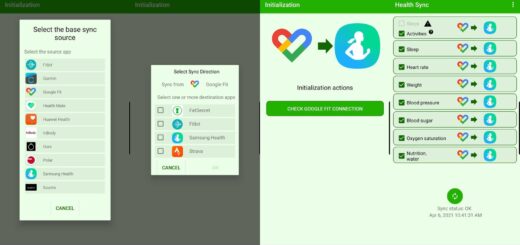Does exercise increase energy levels?
You’re about to discover the simple yet fascinating truth about exercise and its ability to boost your energy levels. Through this article, you’ll explore the age-old question of whether exercise truly gives you more energy. Brace yourself for a compelling exploration of the relationship between physical activity and vitality, unlocking the secrets that lie within the realm of fitness. Get ready to uncover the surprising ways in which exercise can be your ultimate source of rejuvenation and invigoration.
Benefits of Exercise
Exercise has numerous benefits for your overall health and well-being, with one major advantage being increased energy levels. Regular physical activity can give you a natural energy boost and help combat feelings of fatigue. By engaging in different forms of exercise, you can experience enhanced stamina, improved mood, better sleep quality, reduced stress and anxiety levels, and increased physical strength. Let’s delve deeper into the mechanisms behind how exercise increases energy.
Mechanism of Energy Increase
Increased Blood Circulation
When you exercise, your heart rate increases, and more blood is pumped throughout your body. This increased blood circulation delivers oxygen and nutrients to your muscles and organs, helping them function optimally. As a result, you feel more awake and energetic.
Improved Oxygen and Nutrient Delivery
Regular exercise improves your body’s ability to utilize oxygen efficiently. This means that during physical activity, your muscles receive an adequate supply of oxygen and essential nutrients. As a result, your energy production increases, and you feel more energized throughout the day.
Activation of Brain Function
Exercise triggers the release of chemicals in the brain that can enhance cognitive function and improve mental clarity. It stimulates the production of neurotransmitters like dopamine and norepinephrine, which are responsible for boosting alertness and focus. As a result, your brain functions more efficiently, leading to increased energy levels and improved overall mood.
Release of Endorphins
When you exercise, your body releases endorphins, also known as “feel-good” hormones. Endorphins can help alleviate pain, reduce stress, and improve mood. The release of endorphins during exercise can leave you with a positive and energetic outlook, further boosting your energy levels.

Effects on Hormones
Various hormones are involved in the energy-boosting effects of exercise. Understanding their roles can help you gain insight into how exercise increases energy levels.
Increased Production of Adrenaline
During exercise, your body increases the production of adrenaline, a hormone that prepares you for physical activity. Adrenaline improves alertness, speeds up heart rate, and increases blood flow to your muscles. These effects contribute to the energy surge you experience during exercise.
Elevated Levels of Cortisol
Exercise also triggers the release of cortisol, a hormone associated with stress. In moderate amounts, cortisol can help regulate energy and metabolism. Elevated cortisol levels during exercise can provide a temporary energy boost. However, prolonged periods of high cortisol levels, such as chronic stress, may have the opposite effect, leading to fatigue and exhaustion.
Release of Dopamine and Serotonin
Physical activity promotes the release of dopamine and serotonin, two neurotransmitters that play crucial roles in regulating mood and energy levels. Dopamine is associated with pleasure and motivation, while serotonin is involved in regulating mood and promoting feelings of well-being. By increasing the levels of these neurotransmitters, exercise can uplift your mood and boost your energy levels.
Exercise Intensity and Energy Levels
The intensity of your exercise plays a vital role in determining the energy-boosting effects. Different types and levels of exercise have varying impacts on your energy levels.
Aerobic Exercise vs. Anaerobic Exercise
Both aerobic and anaerobic exercises have their unique benefits and effects on energy levels. Aerobic exercises, such as running, swimming, or cycling, increase oxygen consumption, improve cardiovascular health, and promote endurance. These activities are known to improve overall energy levels and stamina. On the other hand, anaerobic exercises, like weightlifting or sprinting, focus on high-intensity, short bursts of activity. While they may not directly increase energy levels, they can contribute to improved strength and stamina, which can indirectly enhance energy levels in the long run.
Duration and Frequency of Exercise
The duration and frequency of your exercise sessions also impact your energy levels. Consistency is key – engaging in regular physical activity, whether it’s short bursts or prolonged sessions, helps condition your body and train your energy systems to function optimally. Longer exercise durations and more frequent workouts increase your overall fitness and contribute to sustained energy levels throughout the day.
Impact of Exercise Intensity on Energy Levels
The intensity of your exercise can directly affect your energy levels. Moderate-intensity workouts, such as brisk walking or cycling, can provide an immediate energy boost that lasts for several hours post-exercise. High-intensity exercise, like interval training or circuit workouts, can lead to an even greater energy surge and may help improve overall energy levels in the long run. However, it’s important to find a balance and avoid overexertion, as excessively intense workouts may leave you feeling drained and fatigued.

Timing of Exercise and Energy
The timing of your exercise can also influence your energy levels throughout the day. Different individuals may have varying preferences and responses to exercise at different times.
Morning Exercise
Many people find that exercising in the morning gives them a significant energy boost for the rest of the day. Morning workouts help jumpstart your metabolism, increase mental alertness, and improve productivity. Additionally, exercising in the morning allows you to reap the benefits of improved sleep quality at night, leading to better overall energy management.
Midday Exercise
Midday exercise can offer a recharge during the day when energy levels may naturally dip. Taking a break from work or other activities to engage in physical activity can increase blood flow to the brain, improve concentration, and combat afternoon fatigue. Additionally, midday exercise can promote better digestion and alleviate post-meal energy slumps.
Evening Exercise
While individual responses may vary, exercising in the evening can also have energy-boosting effects for some individuals. Evening workouts can help release built-up tension and stress from the day, promote relaxation, and improve sleep quality. However, for some individuals, exercising too close to bedtime may disrupt sleep patterns, so it’s important to listen to your body and gauge how evening workouts affect your energy levels.
Types of Exercise That Boost Energy
The type of exercise you choose can have a significant impact on your energy levels. Here are a few types of exercises known for their energizing effects:
Cardiovascular Activities
Cardiovascular exercises, such as jogging, cycling, or dancing, are excellent choices for increasing energy levels. These activities elevate heart rate, improve circulation, and enhance oxygen delivery to the muscles. Engaging in cardiovascular exercises regularly can improve stamina, increase endurance, and leave you feeling more energetic overall.
Strength Training and Resistance Exercises
Strength training exercises, including weightlifting or bodyweight workouts, may not provide an immediate energy surge like cardiovascular activities. However, they contribute to increased muscle mass, improved metabolism, and enhanced overall physical strength. These long-term benefits can lead to sustained energy levels and improved daily functionality.
Yoga and Pilates
Yoga and Pilates are low-impact exercises that focus on breath control, flexibility, and mindfulness. While they may not provide the same intensity as cardiovascular exercises, these practices can help reduce stress, improve mental focus, and promote relaxation. By reducing stress, yoga and Pilates can indirectly lead to improved energy levels.
High-Intensity Interval Training (HIIT)
HIIT workouts involve short bursts of intense exercise followed by brief recovery periods. This style of exercise can significantly increase heart rate, improve cardiovascular fitness, and boost overall energy levels. HIIT workouts are also time-efficient, making them a popular option for those with a busy schedule.
Optimal Nutrition for Energy
In addition to exercise, achieving optimal nutrition is essential for maintaining high energy levels throughout the day. A balanced diet that includes the right macronutrients and essential micronutrients can support energy production.
Balanced Diet
Consuming a balanced diet with adequate portions of protein, complex carbohydrates, and healthy fats helps provide your body with the necessary fuel for energy production. Including a variety of fruits, vegetables, whole grains, and lean proteins can provide sustained energy and prevent energy crashes.
Adequate Hydration
Proper hydration is key for optimal energy levels. Dehydration can lead to feelings of fatigue and sluggishness. It’s important to drink enough water throughout the day to support bodily functions, maintain energy levels, and promote overall well-being.
Pre- and Post-Exercise Nutrition
Fueling your body appropriately before and after exercise can impact your energy levels during workouts and recovery. Consuming a balanced meal or snack containing carbohydrates and protein before exercise provides immediate energy and supports muscle function. Additionally, replenishing glycogen stores and providing protein after exercise aids in muscle recovery and overall energy restoration.
Importance of Micronutrients
Micronutrients, such as vitamins and minerals, play a crucial role in energy production. Consuming a variety of nutrient-dense foods ensures an adequate intake of these essential micronutrients. Vitamins like B vitamins and minerals like iron and magnesium are particularly important for energy metabolism and can help prevent deficiencies that may lead to fatigue.
Individual Variations in Response
It’s important to acknowledge that individual responses to exercise and its effects on energy levels may vary. Several factors can influence how exercise impacts your energy.
Genetic Factors
Genetics may play a role in how your body responds to exercise. Some individuals may have a natural predisposition for higher energy levels or a greater ability to utilize energy efficiently. However, it’s important to remember that exercise can benefit everyone, regardless of genetic factors. The key is finding the types of exercise that work best for your body and incorporating them into your routine.
Fitness Level and Body Composition
Your current fitness level and body composition can influence how exercise affects your energy levels. As you become more physically fit and build muscle, your body becomes better equipped to utilize energy efficiently. Regular exercise and strength training can improve overall fitness, enhance metabolism, and lead to sustained energy levels.
Health Conditions and Medications
Certain health conditions and medications can impact energy levels and how exercise affects them. Chronic illnesses, sleep disorders, or medications that cause drowsiness may require careful consideration and consultation with healthcare professionals when incorporating exercise into your routine. They can provide guidance on exercise modifications or adaptations to optimize energy levels and avoid any potential risks.
Long-Term Benefits for Sustained Energy
Engaging in regular exercise not only provides immediate energy boosts but also offers long-term benefits for sustained energy levels.
Improved Overall Fitness
Regular physical activity helps improve overall fitness levels, enhancing the efficiency of your cardiovascular system and strengthening your muscles. As you become more fit, you’ll notice improved endurance, increased stamina, and decreased feelings of fatigue.
Enhanced Metabolism
Exercise can boost your metabolism, increasing your body’s ability to convert food into energy. A faster metabolism means more efficient energy production, improved digestion, and better regulation of blood sugar levels. All of these factors contribute to sustained energy throughout the day.
Better Stress Management
Exercise is a powerful tool for managing stress. Regular physical activity helps reduce stress levels, promotes the release of endorphins, and improves mood. By managing stress effectively, you can prevent energy-draining mental exhaustion and maintain higher energy levels overall.
Reduced Risk of Chronic Fatigue
Engaging in regular exercise can help reduce the risk of developing chronic fatigue syndrome (CFS) or other conditions associated with persistent fatigue. Exercise improves sleep quality, boosts mood, and enhances overall physical well-being, reducing the likelihood of experiencing prolonged fatigue.
Conclusion
Incorporating exercise into your daily routine can have a profound impact on your energy levels and overall well-being. By understanding the mechanisms behind how exercise increases energy, the effects on hormones, the importance of exercise intensity and timing, and the types of exercises that boost energy, you can tailor your workouts to maximize the energy-boosting benefits. Additionally, optimal nutrition, individual variations in response, and the long-term benefits of sustained energy further emphasize the importance of regular physical activity. So get moving, stay active, and experience the invigorating benefits of exercise for increased energy levels!
















It's great that you talked about how business insurance can provide financial protection against unexpected events and help ensure the…
I like that you mentioned how business insurance is essential for protecting your bottom line and the long-term viability of…